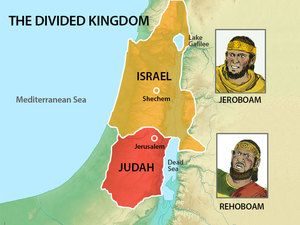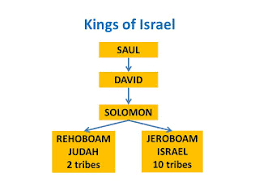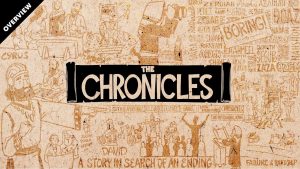Wisdom-Trek / Creating a Legacy
Welcome to Day 1316 of our Wisdom-Trek, and thank you for joining me.
I am Guthrie Chamberlain, Your Guide to Wisdom
Mastering the Bible – When Israel is not Israel – Worldview Wednesday
Wisdom – the final frontier to true knowledge. Welcome to Wisdom-Trek! Where our mission is to create a legacy of wisdom, to seek out discernment and insights, to boldly grow where few have chosen to grow before. Hello, my friend, I am Guthrie Chamberlain, your captain on our journey to increase Wisdom and Create a Living Legacy. Thank you for joining us today as we explore wisdom on our 2nd millennium of podcasts. This is Day 1316 of our Trek, and it is Worldview Wednesday. Creating a Biblical Worldview is important to have a proper perspective on today’s current events. To establish a Biblical Worldview, it is required that you also have a proper understanding of God and His Word. Our focus for the next several months on Worldview Wednesday is Mastering the Bible, through a series of brief insights. These insights are extracted from a book of the same title from one of today’s most prominent Hebrew Scholars, Dr. Micheal S. Heiser. This book is a collection of insights designed to help you understand the Bible better. When we let the Bible be what it is, we can understand it as the original readers did, and as its writers intended. Each week we will explore two insights.
Mastering The Bible – When Israel Is Not Israel
Insight Thirty-Five: “Israel” Doesn’t Always Mean “Israel” in the Old Testament
 Most Bible students will know that Israel’s first three kings were Saul, David, and Solomon. They were the only three kings to rule over all twelve tribes, what scholars call the united monarchy. The complete kingdom was known in the Old Testament as Israel, since the twelve tribes of Israel swore allegiance to the same king. Solomon’s reign ends in l Kings 11. That means the united monarchy – the lives of Saul, David, and Solomon – are covered in 1-2 Samuel and l Kings 1-10.
Most Bible students will know that Israel’s first three kings were Saul, David, and Solomon. They were the only three kings to rule over all twelve tribes, what scholars call the united monarchy. The complete kingdom was known in the Old Testament as Israel, since the twelve tribes of Israel swore allegiance to the same king. Solomon’s reign ends in l Kings 11. That means the united monarchy – the lives of Saul, David, and Solomon – are covered in 1-2 Samuel and l Kings 1-10.
After Solomon died, ten of the tribes seceded from the nation and formed their own kingdom. From that point on, the way biblical writers referred to both political entities can be confusing.
The two tribes left after the secession were Judah and Benjamin. The latter was a tiny tribe and geographical area. Judah was much larger and the place where Jerusalem, the former capital of the united monarchy, was located. Judah was the tribe of David, whom God had chosen and whose lineage God had declared by a covenant was the only legitimate dynasty for rule over his people (2 Samuel 7). Both Judah and Benjamin were located in the southern section of the promised land. As a result, the southern kingdom of these two tribes became known as Judah.
The ten tribes who had defected from David’s dynasty were a different story. Since they comprised the bulk of the land and the tribes, they retained the name “Israel” as a political entity. That means that, after the kingdom split in 1 Kings 11, “Israel” often refers only to the ten tribes. Most of the territory covered by these ten tribes covered the northern part of the promised land, and so this “Israel” is also referred to as the northern kingdom. To make things more complicated, the ten-tribe nation of “Israel” also went by other names. The central hill country of the land was dominated by the territory of the tribe of Ephraim. Jereboam, the first king of the renegade ten tribes, built his capital, Shechem, in Ephraim. However, Ephraim’s own capital had been Samaria. After the time of Jereboam, Samaria became the capital of the northern kingdom. Consequently, the ten-tribe northern kingdom of “Israel” was also known as Ephraim and Samaria.
To make things more complicated, the ten-tribe nation of “Israel” also went by other names. The central hill country of the land was dominated by the territory of the tribe of Ephraim. Jereboam, the first king of the renegade ten tribes, built his capital, Shechem, in Ephraim. However, Ephraim’s own capital had been Samaria. After the time of Jereboam, Samaria became the capital of the northern kingdom. Consequently, the ten-tribe northern kingdom of “Israel” was also known as Ephraim and Samaria.
All of this has an impact on our reading of the Old Testament’s historical material after l Kings 11, as well as books of the prophets who lived after the original kingdom split. “Israel” in those books mostly refers to only ten tribes and is interchangeable with Ephraim and Samaria.
Insight Thirty-Six: Chronicles Contain Propaganda by Design
 In English Bibles, the books of 1&2 Chronicles are grouped with the historical books: Joshua, Judges, Ruth, 1&2 Samuel, and 1&2 Kings. The reason is that the content of 1&2 Chronicles overlaps with the books of Samuel and Kings. The books of 1&2 Chronicles present the story of the Israelite monarchy, both in the days when it was united over all twelve tribes and afterward when it was divided into two kingdoms.
In English Bibles, the books of 1&2 Chronicles are grouped with the historical books: Joshua, Judges, Ruth, 1&2 Samuel, and 1&2 Kings. The reason is that the content of 1&2 Chronicles overlaps with the books of Samuel and Kings. The books of 1&2 Chronicles present the story of the Israelite monarchy, both in the days when it was united over all twelve tribes and afterward when it was divided into two kingdoms.
While the books of Chronicles follow the story of Israel’s united monarchy under David and Solomon presented in Samuel and Kings, the accounts of their reigns in Chronicles are substantially different. The chronicler (the name given to whoever fashioned the history presented in 1&2 Chronicles) systematically censors the material of 1&2 Samuel.
Perhaps the best example of this censoring is the fact that David’s lurid affair with Bathsheba and his subsequent arrangement of her husband Uriah’s death (2 Samuel 11). The incident occurred in connection with David’s military campaigns against Ammon and Syria (2 Samuel 10-11:1). While the chronicler details those campaigns, he says nothing about David’s evil (1 Chronicles 19-20). These omissions reflect a pattern whereby David and Solomon are portrayed only positively.
It’s easy for us to read this as pure propaganda. In one sense, it is. But we must recall that the Old Testament in its final form does, in fact, include 1&2 Samuel and 1&2 Kings, so the Bible doesn’t whitewash the sins of David and Solomon.
Readers would not be deceived. Understanding what the chronicler does requires understanding his goal and context.
Scholars are unanimous that 1&2 Chronicles were written after the exile. In the Hebrew Bible’s arrangement, these are the last two books. Both the northern and southern kingdoms had committed idolatry, worshipping other gods, flaunting God’s law. The northern kingdom had forsaken David’s dynasty, something God had also specifically instituted. These corporate rebellions had been the cause of God’s wrath and the exile.
God’s restoration of the kingdom of Judah after seventy years in exile was a second chance. The chronicler rewrote the nation’s history with an eye toward reminding his readers of what had led to the debacle: forsaking David and his heir, Solomon, and worshipping other gods. The forgiven nation must be loyal to David’s dynasty. There was no room for rebellion. The nation must honor God’s chosen line as it worshipped God alone. Toward motivating that loyalty, the chronicler’s account presents David and Solomon at their best – the glory days of the nation – to make people want that good life once more.
Let us close today with the reading of Psalm 19:7
The instructions of the Lord are perfect, reviving the soul. The decrees of the Lord are trustworthy, making wise the simple.
That will conclude this week’s lesson on another two insights from Dr. Heiser’s book “Mastering The Bible.” Next Worldview Wednesday, we will continue with two additional insights. I believe you will find each Worldview Wednesday an interesting topic to consider as we build our Biblical worldview.
Tomorrow we will continue with our 3-minute Humor nugget that will provide you with a bit of cheer, which will help you to lighten up and live a rich and satisfying life. So encourage your friends and family to join us and then come along with us tomorrow for another day of ‘Wisdom-Trek, Creating a Legacy.’ If you would like to listen to any of our past 1315 treks or read the Wisdom Journal, they are available at Wisdom-Trek.com. I encourage you to subscribe to Wisdom-Trek on your favorite podcast player so that each day’s trek will be downloaded automatically.
If you would like to listen to any of our past 1315 treks or read the Wisdom Journal, they are available at Wisdom-Trek.com. I encourage you to subscribe to Wisdom-Trek on your favorite podcast player so that each day’s trek will be downloaded automatically.
Thank you so much for allowing me to be your guide, mentor, and, most of all, your friend as I serve you in through this Wisdom-Trek podcast and journal.
As we take this Trek together, let us always:
- Live Abundantly (Fully)
- Love Unconditionally
- Listen Intentionally
- Learn Continuously
- Lend to others Generously
- Lead with Integrity
- Leave a Living Legacy Each Day
I am Guthrie Chamberlain….reminding you to ’Keep Moving Forward,’ ‘Enjoy your Journey,’ and ‘Create a Great Day…Everyday’! See you Tomorrow!
Leave a Reply